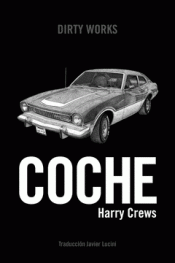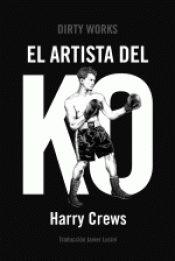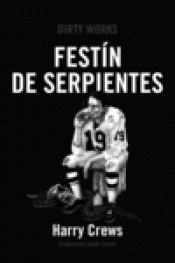Coincidiendo con la llegada de un circo de freaks, un joven con voz de ángel, convertido en un próspero cantante de gospel, regresa a su pueblo, Enigma, donde están a punto de linchar a un negro por matar y violar a la que fuera su novia.
Los lugareños lo idolatran de un modo absurdo y le atribuyen poderes curativos que no posee. Él, atormentado por la dramatización de su farsa, no quiere que la verdad salga a la luz, pues teme que la magnitud de la decepción pueda resultar calamitosa.
Como afirma Kiko Amat en el prólogo, «Enigma es un pueblo lleno de retraso, burricie, violencia, racismo e, inevitablemente, fanatismo religioso, rama cristiana sureña extrema. Palurdos locos y creyentes: una eterna receta para la catástrofe».
EL CANTANTE DE GOSPEL
AUTOR/A
CREWS, HARRY
Harry Eugene Crews (7 June 1935 ? 28 March 2012) was an American novelist, playwright, short story writer and essayist.<BR><BR>He was born in Bacon County, Georgia in 1935[1] and served in the Marines during the Korean War. He attended the University of Florida on the GI Bill, but dropped out to travel. Eventually returning to the university, Harry finally graduated and moved his wife, Sally, and son, Patrick Scott, to Jacksonville where he taught Junior High English for a year.<BR><BR>Crews returned to Gainesville and the university to work on his master's in English Education. It was during this period that he and Sally divorced for the first time. Harry continued his studies, graduated, and ? denied entrance into UF's Creative Writing program ? took a teaching position at Broward Community College in the subject of English. It was here in south Florida that Harry convinced Sally to return to him, and they were re-married. A second son, Byron, was born to them in 1963. He returned to University of Florida in 1968 not as a student, but as a member of the faculty in Creative Writing. Crews formerly taught in the creative writing program at the University of Florida. In 1964, Patrick Scott drowned in a neighbor's pool. This proved to be too heavy a burden on the family, and Harry and Sally were once again divorced.<BR><BR>His first published novel, The Gospel Singer, appeared in 1968. His novels include: A Feast of Snakes, The Hawk is Dying, Body, Scar Lover, The Knockout Artist, Karate Is A Thing of the Spirit, All We Need of Hell, The Mulching of America, Car, and Celebration. He published a memoir in 1978 titled A Childhood: The Biography of a Place. Crews wrote essays for Esquire, Playboy, and Fame. He had a column in Esquire called "Grits" for fourteen months in the 1970s, where he covered such topics as cockfighting and dog fighting. Harry had a tattoo on his right arm which said: "How do you like your blue eyed boy Mr. Death" (from the poem Buffalo Bill's by e.e. cummings) beneath a skull.<BR><BR>The University of Georgia acquired Harry Crews's papers in August 2006. The archive includes manuscripts and typescripts of his fiction, correspondence, and notes made by Crews while on assignment.<BR><BR>He died 28 March 2012, from complications of neuropathy.<BR><BR>Wikipedia






